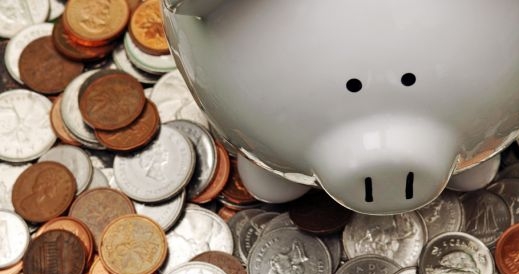Building a financial cushion (cash reserves) for your mobile food business is never easy. Experts say that businesses should have anywhere from six to nine months’ worth of income safely tucked away in the bank.
What Cash Reserves Mean For You
If your roaming bistro is grossing $10,000 per month, the mere thought of saving over $90,000 dollars in a savings account will either have you collapsing from fits of laughter or from the paralyzing panic that has just set in.
What may be a nice well-advised idea in theory can easily be tossed right out the window when you’re just barely making payroll each month. So how is a food truck owner to even begin a prudent savings program for building cash reserves and long-term success in the mobile food industry?
Realizing that your food truck business needs a cash reserves savings plan is the first step toward better management of it.
Why Cash Reserves A Must For Your Food Truck
The reasons for growing a financial nest egg are strong. Building cash reserves allows you to plan for future growth in your food truck empire and have the capital necessary to launch those plans when the time is right. Having a source of back-up income can also carry a business through the slow times of the year, especially for food trucks that operate in regions of the country with severe weather.
When market fluctuations, such as the dramatic increase in gasoline and food prices, start to affect your bottom line, you may need to dip into your cash reserves to keep operations running smoothly until the difficulties pass. Try to remember that you didn’t build your business overnight and you cannot build a savings account instantly either.
Review your financials monthly to see where you can trim expenses and reroute any savings to a separate cash reserves account. This will also help to keep you on track with cash flow and other financial issues. While it can be quite alarming to see your cash flowing outward with seemingly no end in sight, it’s better to see it happening and put corrective measures into place, rather than discovering your food truck’s losses five or six months too late.
RELATED: Developing Your Food Truck Growth Strategies
The Bottom Line
It is important to always plan for the future of your food truck and expect the unexpected. One way to be ready for anything is by building up cash reserves that can be used in emergency instances, or as a nice bonus for yourself at the end of the year. If you are struggling to make ends meet, go ahead and bookmark this page. Implement the suggestions provided as soon as you can to better set yourself up for the future.
What is your food truck cash reserves plan? We’d love to hear how you built it or if you started with it and keep it growing. Share your thoughts on this topic in the comment section, our food truck forum or social media. Facebook | Twitter




